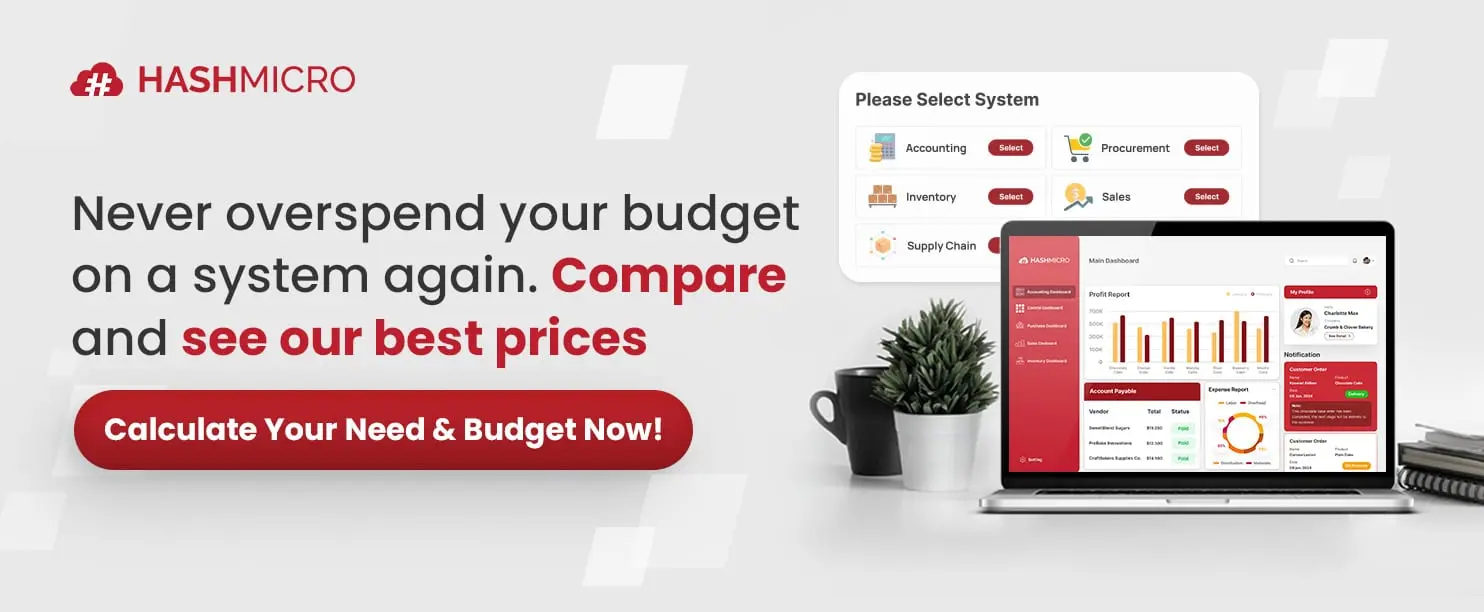There has never been a greater need for more intelligent and effective oil palm plantation management software, as Malaysia is the second leading producer of palm oil worldwide, supplying around a third of the world’s palm oil. Palm oil is one of Malaysia’s primary industries, accounting for 3.7% of its overall gross domestic product (GDP).
The need for HashMicro Agriculture Software is growing as it streamlines field operations, harvesting schedules, worker tracking, and real-time reporting. It replaces manual, scattered processes in oil palm estates and helps improve the consistency of crude palm oil (CPO) quality through better monitoring and data-driven decisions.
The article will examine the best recommendation for oil palm plantation management software in Malaysia and what characteristics companies should consider when selecting a solution.
Key Takeaways
|
What is Oil Palm Plantation Management Software?
The word “oil palm plantation management software” refers to specific digital tools or systems made to assist in managing and optimising every aspect of oil palm plantation operations, from scheduling workers and field operations to yield tracking, cost control, and sustainability compliance.
This software acts as a centralised platform for automating, digitising, and monitoring daily plantation operations, such as:
- Land preparation and planting planning
- Fertiliser application and crop care schedules
- Harvest forecasting and actual yield tracking
- Workforce management and attendance
- Inventory, logistics, and transport monitoring
- Cost and financial tracking across blocks or divisions
Sustainability reporting
With thousands of hectares frequently under one estate’s management, Malaysia’s palm oil industry is extensive and labour-intensive. Using oil palm plantation software can replace manual methods that are time-consuming and prone to errors.
Benefits of Using Oil Palm Plantation Software
Here are the benefits of using oil palm management software:
-
Improved operational efficiency
Palm oil plantation management systems, such as clearing land, planting, fertilising, and harvesting, are made easier with plantation software. Delays and manual paperwork are decreased by effectively assigning and automating tasks.
-
Real-time data and monitoring
From any location, managers can access the most recent field data, including harvest volumes, weather, and crop growth, enabling them to make quicker and more informed decisions.
-
Cost tracking and budget control
Expenses can be tracked by activity, division, or block using software. This helps plantations analyse labour, input, and logistical costs, and cut back on unnecessary expenditures for daily needs, such as water management in oil palm plantations.
-
Workforce productivity monitoring
Field workers’ productivity, attendance, and task performance are all monitored digitally. In addition to reducing fraud and identifying underperforming areas, this ensures accurate payroll.
-
Yield forecasting and performance analytics
The software can assist in estimating future yields and analysing patterns using previous data and current inputs. This facilitates supply chain cooperation and strategic planning.
Best Oil Palm Management Software
Plantation operations can be more effectively planned, monitored, and analysed with the use of oil palm management software. The following choices for oil palm plantation management software in Malaysia might be worth considering:
1. HashMicro oil palm plantation management software

HashMicro oil palm plantation management software is a leading provider of agricultural management solutions, transforming how farmers and agribusinesses operate throughout Malaysia. It was explicitly designed to modernise and simplify agrarian processes.
To explore how it could improve your plantation management, try our free demo right now. Users can make informed decisions about agricultural processing and land preparation thanks to HashMicro, which provides them with all the necessary information about the value and condition of their infrastructure.
Here are the key features of HashMicro oil palm plantation management software:
- Land preparation management: This feature helps plan and monitor pre-planting activities, including clearing, levelling, soil testing, and setting up drainage.
- Automated production scheduling: Automates scheduling for key operations such as fertilisation, harvesting of fresh fruit bunches (FFB), and transportation to mills.
- Agribusiness activity management: Manages all agribusiness-related tasks, including the procurement of inputs (fertilisers, pesticides), contractor coordination, and sales of harvested palm oil.
- Business management automation: Automates administrative tasks such as budgeting, payroll for field workers, inventory tracking, and financial reporting.
- Plant care scheduling: Schedules maintenance tasks like pruning, fertiliser application, pest control, and replanting. For oil palms, timely care is crucial to prevent disease outbreaks and ensure optimal growth.
- Planting reminder: Sends alerts and reminders for planting new seedlings or replanting ageing palms. This is especially useful in large estates where different blocks may follow different planting cycles.
- Workforce monitoring: Tracks the attendance, location, and productivity of field workers and supervisors. In oil palm plantations, labour performance has a direct impact on harvest quality and yield.
- Real-time data input: Enables field staff to record activities, harvest results, and issue reports instantly using mobile apps or IoT devices. Real-time data enables faster decision-making, immediate responses to issues, and accurate performance tracking across various blocks and regions.
| Pros | Cons |
|---|---|
|
|
Click the banner below to view the estimated cost and find out more about how HashMicro oil palm management software may enhance the operations of your plantation.

2. Trimble

Trimble Agriculture offers plantation management software for Malaysian plantations. By linking every aspect of a farmer’s business, their tools enable quick decisions based on real-time data. Trimble utilises advanced technologies, such as Geographic Information Systems (GIS), and efficient processes to help farmers enhance productivity, profits, and sustainability.
Here are the key features of Trimble oil palm plantation management software:
- Farm management
- Task documentation
- Work order management
| Pros | Cons |
|---|---|
|
|
3. AgSquared

AgSquared’s target market consists of small to mid-sized farms, particularly those that produce a diverse range of crops. It offers tools for crop planning, field management, team communication, and recordkeeping.
Here are the key features of AgSquared oil palm plantation management software:
- Crop planning
- Task management
- Labor tracking
| Pros | Cons |
|---|---|
|
|
4. Tend

From seed to sale, farmers can plan, manage, and monitor every aspect of their farm operations with Tend, a comprehensive oil palm plantation management software. Small and mid-sized farms around the world, including those in Malaysia, are interested in it due to its user-friendly design and emphasis on organic and sustainable agricultural practices.
Here are the key features of Tend oil palm plantation management software:
- Crop planning
- Task management
- Record keeping
| Pros | Cons |
|---|---|
|
|
5. FarmERP

FarmERP, an oil palm plantation software, is designed for companies that provide services to agribusinesses. The platform offers a versatile approach to managing resources, data, and strategy across various agribusiness sectors. Committed to sustainability, FarmERP aims to support the industry’s overall growth.
Here are the key features of FarmERP oil palm plantation management software:
- Integration with IoT
- Mobile app
- Procurement & packing
| Pros | Cons |
|---|---|
|
|
6. Conservis

One of the software programs for oil palm plantations in Malaysia that offers the digital tools necessary for agricultural success is Conservis. By providing real-time data collection, sophisticated analytics, and comprehensive planning capabilities, its web and mobile platforms support better decision-making and efficient reporting.
Here are the key features of Conservis oil palm plantation management software:
- Inventory and grain management
- Machine integration
- Reporting and analytics
| Pros | Cons |
|---|---|
|
|
7. FarmBrite

Farmbrite is a comprehensive oil palm plantation management program designed to help modern farmers and ranchers streamline their operations. It integrates data, sales, records, and duties, incorporating several features to enhance productivity and enable users to focus on farming while the system handles the rest.
Here are the key features of FarmBrite oil palm plantation management software:
- Crop & livestock management
- Task management
- Inventory management
| Pros | Cons |
|---|---|
|
|
8. CropTracker
![]()
Croptracker, an agricultural software application created by Dragonfly IT, is utilised by Malaysian farmers. Croptracker prioritises features that improve accessibility, traceability, and productivity. With Croptracker, farmers can create customised schedules, monitor the activities of their work crews, and generate analytics and reports.
Here are the key features of CropTracker oil palm plantation management software:
- Storage records
- Quality control
- Harvest packing and recording
| Pros | Cons |
|---|---|
|
|
9. Agrivi

Agrivi is a global platform for oil palm plantation management software that promotes data-driven and sustainable farming practices. Both large and small farmers can plan, track, and evaluate their farming activities. More than 150 countries use Agrivi, including numerous Malaysian cooperatives and agribusinesses.
Here are the key features of Agrivi oil palm plantation management software:
- Comprehensive farm management
- Field activity tracking
- Pest and disease detection
| Pros | Cons |
|---|---|
|
|
10. EasyFarm

EasyFarm is oil palm plantation management software designed to optimise crop planning, animal management, and financial tracking. Through in-depth data analysis, the software aims to increase production and support sustainable agriculture practices.
Here are the key features of EasyFarm oil palm plantation management software:
- Chart of accounts
- Cost centers
- Bank account integration
| Pros | Cons |
|---|---|
|
|
11. Heirloom

For small-scale, organic, and regenerative farms, Heirloom Agricultural Asset Software is a cloud-based farm management application. It provides farmers with an easy-to-use platform to monitor field activities, optimise processes, and ensure adherence to organic standards.
Here are the key features of Heirloom oil palm plantation management software:
- Field activity tracking
- Organic certification support
- Crop and field mapping
| Pros | Cons |
|---|---|
|
|
12. Local Line

Local Line is an agriculture inventory software and sales management platform designed for local farmers, producers, and food vendors. Local Line is intended to help farmers sell their products directly to consumers, restaurants, and retailers, in contrast to traditional farm management software, which concentrates on crop or field data.
Here are the key features of Local Line oil palm plantation management software:
- Online storefront
- Inventory & product management
- Order & delivery management
| Pros | Cons |
|---|---|
|
|
13. QuickBooks with Farm Add-ons

QuickBooks, a well-known accounting tool, is widely used by many farmers and agricultural businesses, particularly in Malaysia, to manage payroll, inventory, and finances. Although not explicitly designed for farms, QuickBooks can be adapted for agricultural use by modifying its chart of accounts, categories, and reports to align with agricultural activities.
Here are the key features of QuickBooks oil palm plantation management software:
- Farm financial management
- Custom chart of accounts
- Cloud access
| Pros | Cons |
|---|---|
|
|
14. Ambrook

Ambrook is a modern oil palm plantation software program designed to help farmers better organise and manage their financial records, spending, and funding prospects. Digitally informed farmers or agri-entrepreneurs seeking a more effective way to monitor farm finances and enhance decision-making may find the financial-first approach helpful.
Here are the key features of Ambrook oil palm plantation management software:
- Farm expense tracking
- Custom chart accounts
- Mobile friendly
| Pros | Cons |
|---|---|
|
|
15. FarmRaise

FarmRaise, a digital platform founded in the United States, primarily assists farmers in managing their farm finances and has access to financial instruments and funding programs. FarmRaise streamlines farm planning and financial management for small and medium-sized farms, in contrast to traditional farm management software that primarily focuses on fieldwork.
Here are the key features of FarmRaise oil palm plantation management software:
- FarmRaise tracks (mobile app)
- Custom financial reports
- Goal setting & planning tools
| Pros | Cons |
|---|---|
|
|
How to Choose the Right Software for Your Oil Palm Plantation

Selecting the right plantation management software is a crucial decision that can significantly impact your estate’s productivity and profitability. Here’s what to consider when making your choice:
-
Assess your plantation’s needs and scale
You need to ask these questions to gauge your needs:
Estate or smallholder? While some software is designed for small producers or cooperatives, others are targeted toward large plantations.
Mechanised versus manual processes? Select a system that can grow with you while still integrating seamlessly into your current setup.
-
Check for GPS and mapping integration
In palm plantations, block-level management is essential. Field activity monitoring by zone or block, geolocation for worker tracking, and GIS mapping are all features of a good system.
-
Prioritise data analytics and reporting
Seek out software that provides sustainability data, labour cost statistics, yield projections, and dashboards; ideally, it can be exported to Excel or PDF for board meetings and audits.
Conclusion
As Malaysia’s palm oil sector expands, the use of plantation management software is becoming increasingly essential rather than optional. In addition to simplifying everything from fieldwork to finances, these digital technologies enable estate owners and managers to make decisions more quickly, intelligently, and sustainably.
HashMicro oil palm plantation management software is unique to the local market and seamlessly integrates into your agricultural processes, unlike any other option. Whether you’re in control of thousands of hectares or a smallholding, HashMicro can help you achieve more profit, efficiency, and transparency.
Get a free demo now to learn more about HashMicro’s features, scalability, and committed support to help your business develop.

FAQ About Oil Palm Plantation Management
-
What is the problem with palm oil plantations?
The most significant impact of unsustainable palm oil production is the large-scale devastation of tropical forests. In addition to widespread habitat loss for endangered species such as Asian rhinos, elephants, tigers, and orangutans, this can also lead to significant soil erosion.
-
Which is the largest palm oil plantation company in Malaysia?
Malaysia’s Sime Darby is the largest listed palm oil company globally, based on plantation area and fresh fruit bunch production.
-
What is the Malaysian sustainable palm oil policy?
The Malaysian Sustainable Palm Oil (MSPO) certification is Malaysia’s national sustainability standard for palm oil production. It ensures environmentally friendly, socially responsible, and economically viable palm oil practices.






























